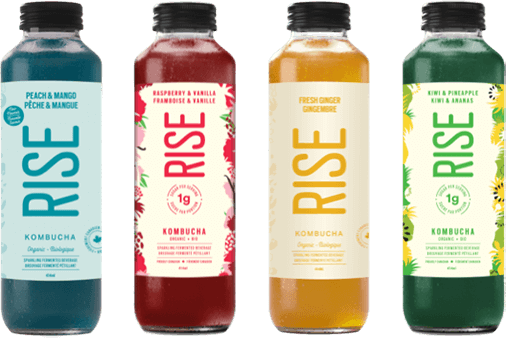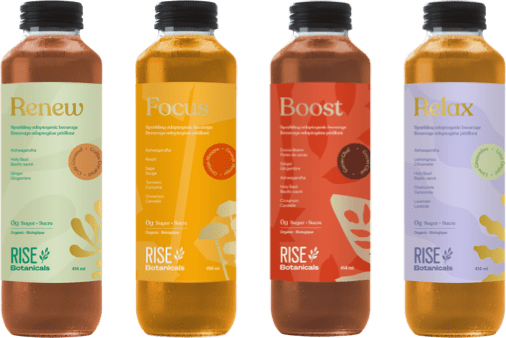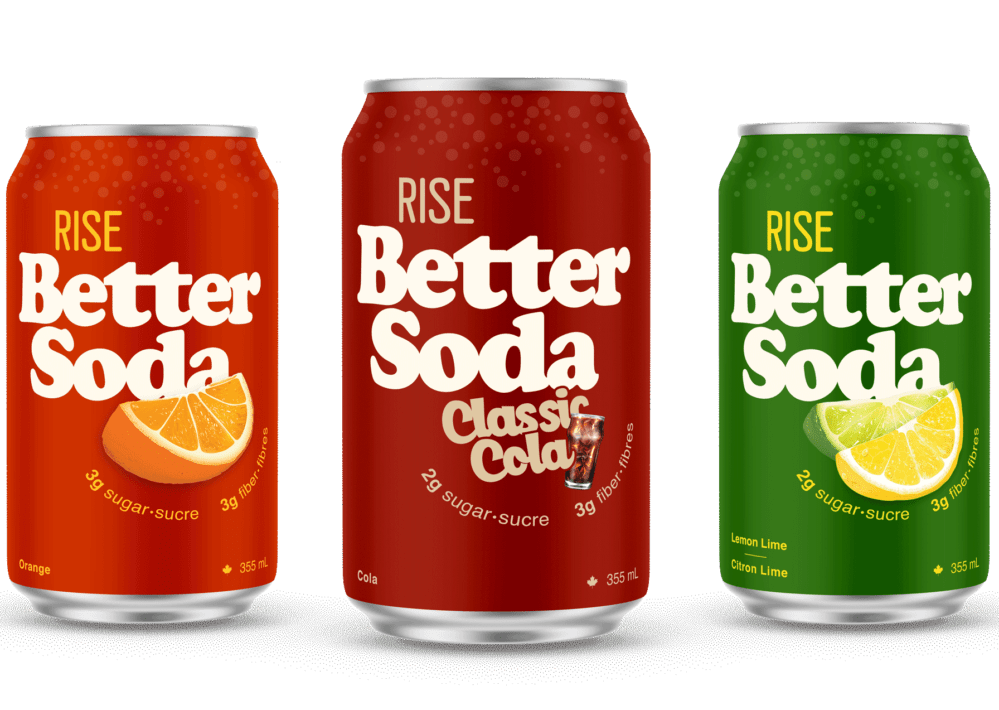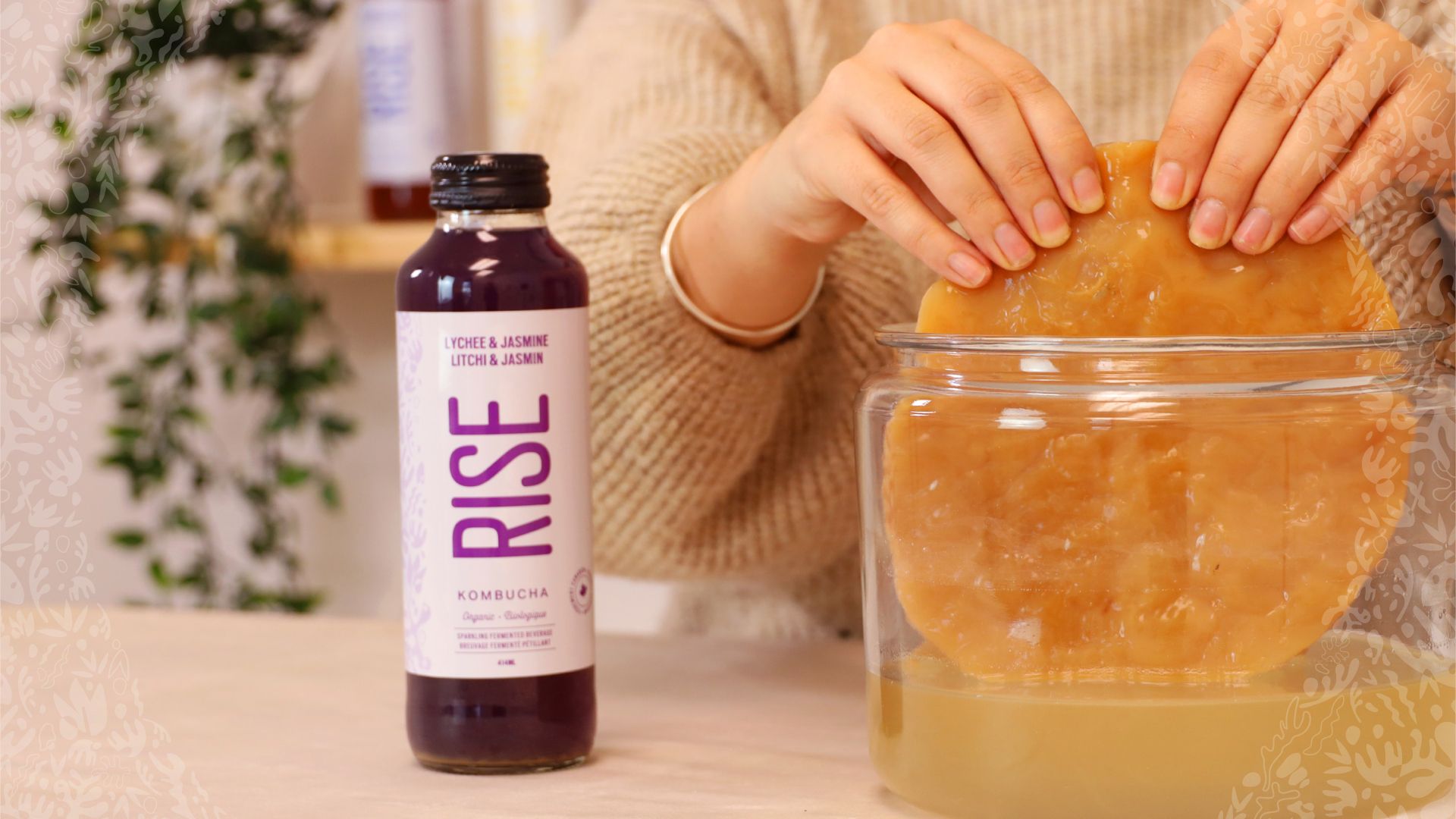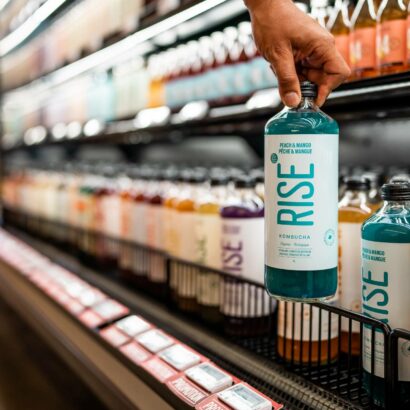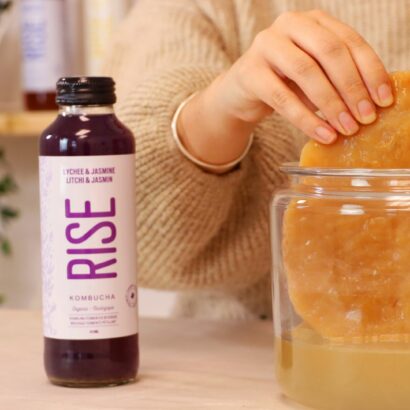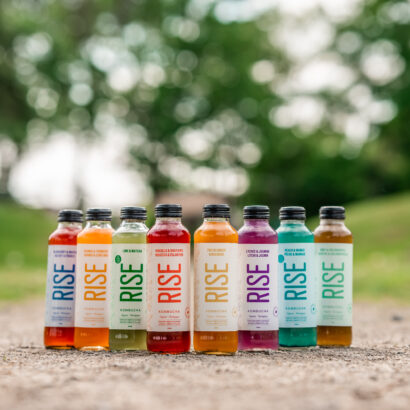Is Kombucha Halal & What Does That Mean?
The word ‘halal’ translates to the word ‘permissible.’ This term is widely used in the food market, highlighting the dietary standard, as directed in the Qur’an (the Muslim scripture). Foods that are not permissible are referred to as “Haram.” These terms are generally related to meat products, cosmetics, personal care products, pharmaceuticals, food ingredients, and food contact materials.
While many things are halal or haram, some are not so clear… like kombucha.
What Is Kombucha?
Kombucha is a sparkling fermented tea beverage made with sweetened black or green tea and other herbs, spices, fruits, or vegetables. It’s a healthy alternative to sugary soft drinks as it’s low in sugar, filled with living cultures, organic acids, and antioxidants that support the immune system. Its health potency is great for gut health and digestion too! Kombucha comes in a wide variety of flavours so that you can enjoy delicious, healthful live cultures whenever the mood strikes.
How Is Kombucha Made?
Kombucha is made by fermenting tea using a symbiotic culture of bacteria and yeast, known as a SCOBY. A SCOBY is introduced to sweetened, brewed tea made with filtered water and left to ferment to make kombucha. During this time, the sugar in the tea feeds the SCOBY, stimulating healthy bacterial growth. Unpasteurized kombucha is living with ongoing fermentation, which means those who follow a Halal diet should be mindful of over fermentation.
What Does Kombucha Taste Like?
Kombucha has a tart taste similar to apple cider, but its notes are sharper. The flavour can vary depending on the teas and fruits used in the process. RISE Kombucha likes to think we have something for everyone, whether you like sweet or savoury beverages! If you’ve never tried kombucha before, read our article on what to expect when you take your first sip!

What Does “Halal” Mean?
Halal, meaning lawful in Arabic, is the Islamic dietary law that identifies food permitted for Muslims. For example, Halal meat is purchased from an authorized halal butcher who follows specific Islamic guidelines.
Nearly every food is considered halal in Islam unless the Qur’an or the Hadith specially prohibits it. For example, Muslims cannot eat any form of pork product or consume any food that has been in contact with it. By official definition, halal foods are those that are:
- Free from any component that Muslims are prohibited from consuming according to Islamic law (Shariah).
- Processed, made, produced, manufactured and/or stored using utensils, equipment and/or machinery that have been cleansed according to Islamic law.
(source)
What Does “Haram” Mean?
Haram refers to anything prohibited in the Qur’an or would result in sin when committed by a Muslim. These could be drinking alcohol, eating pork, or committing adultery; all referred to as haram activities within Islam.
Foods that are considered Haram are:
- Alcoholic drinks and intoxicants
- Non-Halal Animal Fat
- Enzymes (Microbial Enzymes are permissible)
- Gelatine from non-Halal source (fish gelatine is Halal)
- L-cysteine (if from human hair)
- Lard
- Lipase (only animal lipase need be avoided)
- Non-Halal Animal Shortening
- Pork, Bacon / Ham and anything from pigs
- Unspecified Meat Broth
- Rennet (All forms should be avoided except for plant/microbial/synthetic – rennet obtained from halal slaughtered animals is permissible)
- Stock (a blend of mixed species broth or meat stock)
- Tallow (non-Halal species)
- Carnivorous animals, birds of prey and certain other animals
- Foods contaminated with any of the above products
(source)
Is Fermented Food Halal or Haram?
While fermentation can result in alcohol, fermented foods such as sauerkraut, kimchi or kefir are considered halal. According to Saeed A. Hayek, Ph.D., an Islamic Food and Nutrition Council of America food scientist, “most fermentation processes will not produce ethanol to the level that can make it prohibited in Islam or not halal. For example, yogurt and pickles are fermented foods containing ethanol residues, which is acceptable for halal. The main haram fermentation is alcoholic beverages.”
Is Kombucha Halal?
Many wonder if kombucha contains alcohol. It indeed does, but not in high quantities like what you would find in beer or wine. The amount of alcohol is very close to the levels found in fruit juices and other non-alcoholic beverages on store shelves, which means there ́s virtually no chance of becoming intoxicated just by drinking a kombucha beverage. In fact, ripe bananas have a more naturally occurring alcohol!
Although kombucha has a low alcohol content, Muslims consider it halal because its production is a by-product of a natural fermentation process. Because this process occurs naturally and produces such low alcohol levels that it would not make you intoxicated, many Muslims consider it for consumption. We suggest keeping your kombucha in your refrigerator as if it is kept at room temperature, it can continue to ferment and build up more alcohol content.
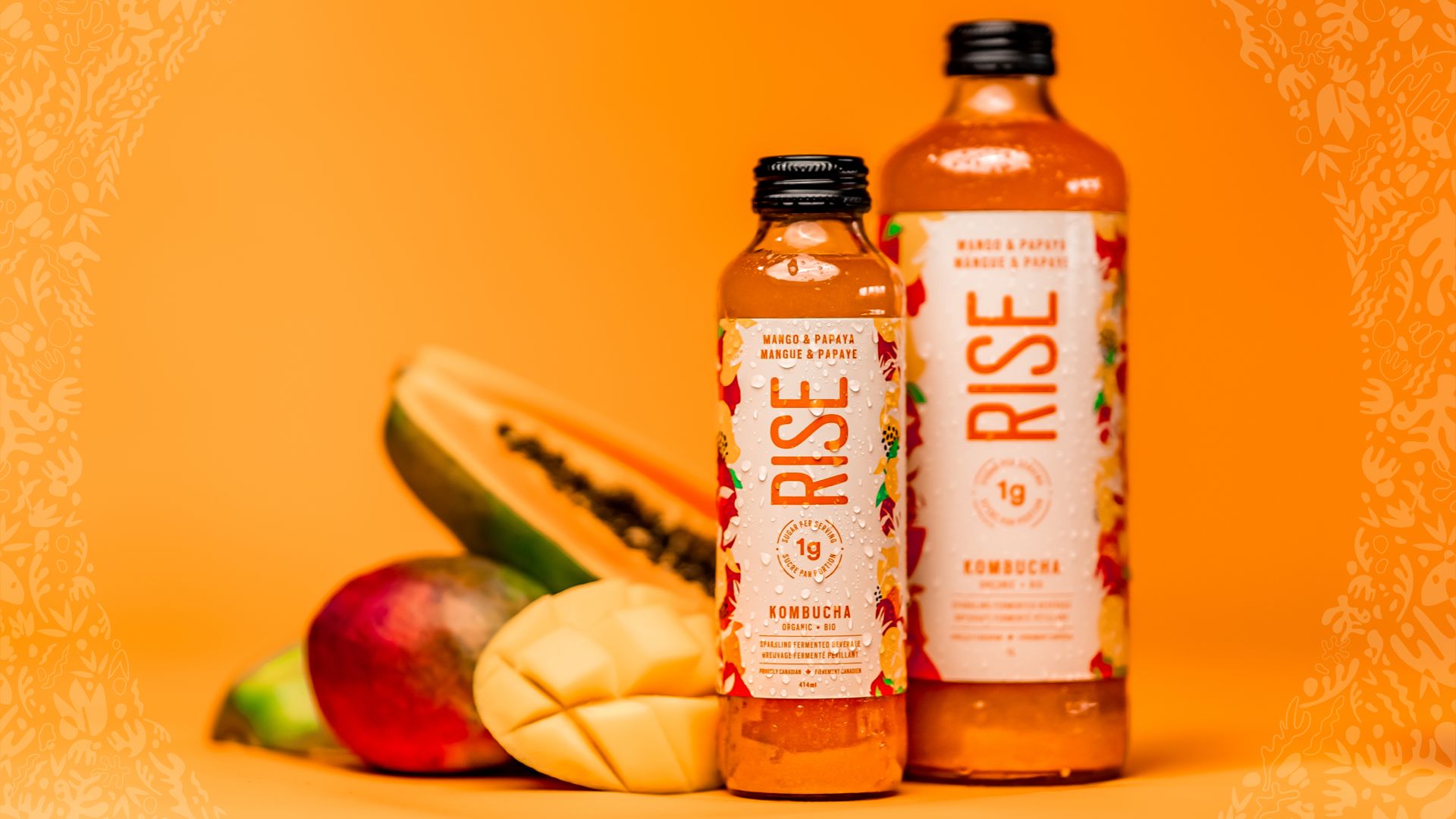
What About Home-Brewed Kombucha?
Studies have shown that homebrewed kombucha can reach alcohol levels as high as 3-5% ABV, roughly the same as a mid-strength brew. With a proprietary technique that guarantees alcohol volume remains below 0.5% ABV, RISE Kombucha is perfect for Muslims who want to enjoy the sparkling fermented beverage without worry!

